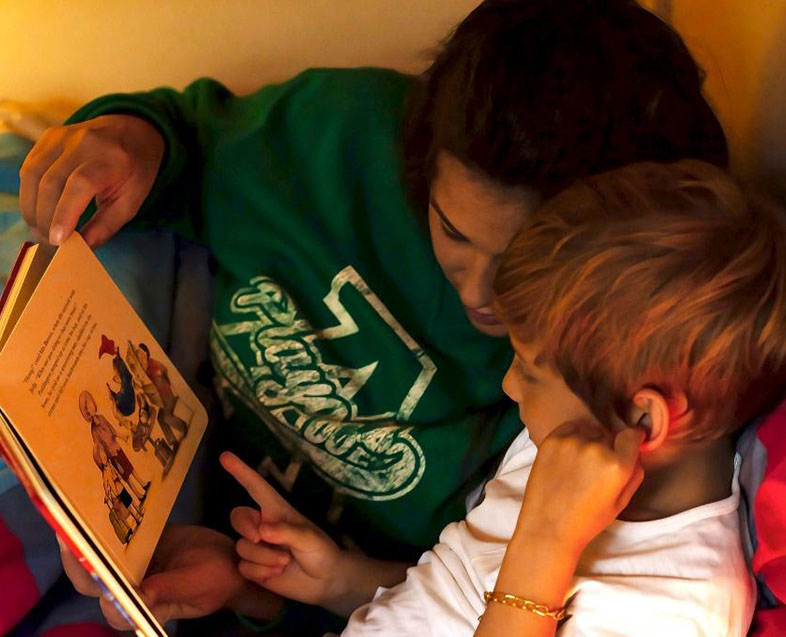Sometimes parents are afraid to talk about bedwetting with anyone outside of the family, such as with other mothers and fathers they know. They feel embarrassed about their child wetting the bed or feel ashamed of their child. They worry about what others might think or say about their child. However, experts believe that sharing your concerns with others can be a big help.
Speaking about it openly—with people you trust—can help set a positive example to your child that bedwetting shouldn’t be taboo. Talking about bedwetting can also help to reduce your and your child’s anxiety around it while improving other people’s understanding. It’s the best way to get the right support for you and your child.
Seek out bedwetting support from family and friends
Never underestimate the power of a listening ear. Whether it’s friends, family, or even your child’s teacher, support can come in all shapes and sizes. By talking about it, you’ll probably find that some people have had similar experiences. And that can only be a reassuring thing, to know you’re not alone in this.
While we encourage you to reach out for support, please keep in mind a few simple things:
Your whole family needs to be supportive
Every family member should positively encourage your child so they can feel confident on their journey towards a drier night.
Not everyone will have experience
While some may be all too familiar with dealing with their child’s bedwetting, others may not be and that’s okay. Consider seeking advice from those who are, or simply ask for support.
Bedwetting myths exist
While bedwetting is often a normal part of development, many people still have misconceptions about the causes of bedwetting. By talking about the issue, you can help to bust the myths with the right information.

How to talk to adults and kids about your child’s night-time accidents
Naturally, speaking about bedwetting can seem daunting at first, but it should get easier with time and practice. Perfect for those who are beginning to talk about their situation, our scripts for success provide everything you need to explain your child’s bedwetting to adults and children.
Remember to tailor the templates to your family or situation so everyone knows how they can best support you and your child.
Script 1: Talking to adults about bedwetting
“Thanks for asking about [child’s name]’s night-time dryness. [They’re potty training at the moment. / They’re potty trained!]
However, night-time control is a totally different process. Since it’s a phase all kids go through, there’s no definite age [child’s name] will be dry at night, so we don’t need to worry about it.
It’s just all about making sure [child’s name] feels supported, and doesn’t worry about it.
I’d really appreciate it if we all can help [child’s name] feel confident about the way they’re growing.”
Script 2: Talking to other kids or siblings about a younger child’s bedwetting
“Hey, guys.
[Child’s name] is [potty training/toilet trained in the day] and doing great. They’ll become dry at night when their body is ready, just like you did.
Teasing hurts their feelings, just as it hurts yours.
Let’s help [child’s name] feel supported and confident. That’s how we treat each other as a family.”

Encourage questions and point them in our direction
Feel ready to talk about bedwetting? Prepare yourself for questions, or even a little pushback. A sign of curiosity, questions are a great opportunity to give more information about what bedwetting is and why it happens.
Worried you don’t have all the answers? Don’t panic! Our bedwetting advice is on-hand whenever you need it for all the information at your fingertips.
It’s okay to feel nervous about starting a discussion
While you may feel nervous talking about bedwetting, remember to approach the subject with a positive attitude. Don’t be afraid to ask friends or family for support and make them aware you’re asking because you trust them.
Be clear that your child needs kindness right now, and that they can learn how to support a child who is bedwetting and more with our bedwetting advice.


 your parenting partner
your parenting partner